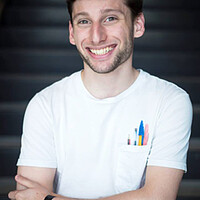Will ESL drug tests legitimize competitive gaming as a sport?
Loading...
On Wednesday, the Electronic Sports League (ESL) – an international competitive video game league – announced that it would adopt illegal-drug testing practices similar to those used during the Olympics.
The most recent announcement, which a spokesperson made on Reddit, comes a month after the league’s first statement that it would test for performance-enhancing drugs (PEDs) during competitions. Some see it as direct response to a top player admitting to taking PEDs during tournaments. The organization states that the new policy will help promote fairness in tournaments.
“The popularity and visibility of esports has grown exponentially in recent years, but this combined with the increasing size of prize pools has also made the temptation of rule-breaking even greater,” the League wrote on its website last month. “ESL has an ongoing commitment to safeguarding both the integrity of our competitions and that of esports as a whole.”
ESL is the world’s largest e-sports league and, as competitive gaming becomes a profitable and more widely-recognized sport, is looking to give the industry more legitimacy. This is difficult when players reveal that many competitors abuse Adderall – a drug often used by those diagnosed with attention deficit hyperactivity disorder (ADHD).
“Our main goal is and always will be to maintain the fair play spirit and the integrity of our competitions, and we’re confident that the anti-doping policy is an important improvement that will help us advance as a sport,” the league’s spokeswoman wrote on Reddit on Wednesday.
The new policies will be instituted immediately. As the spokeswoman clarified in her post, the league will be working closely with the German Nationale Anti-Doping Agentur (NADA) and World Anti-Doping Agency (WADA) to establish norms and practices for properly keeping up drug ban rules while assuring the privacy of players.
The list of substances that ESL has banned matches that of WADA, and the bans will only be enforced during tournaments. ESL will not go after players caught using illegal drugs outside of the context of a competition. The drug ban is instead being used as a way to ensure that players are not at an unfair advantage.
By adopting similar rules to the Olympics in treating drug use, ESL is part of a growing movement that thinks of competitive gaming as a professional sport. Top players often make upward of a million dollars annually, and take part in international competitions on contracted and sponsored teams. The video game industry is immensely profitable, valued at just under $20 billion. Twitch, one of the most popular online gaming stream services, was also bought by Internet giant Amazon for just under a billion dollars last year.
But many are skeptical if that makes online gaming the same caliber competition as other sports; in some cases, it becomes an archetypal “jocks versus nerds” movie plot from the 1980s.
As an industry, video games have faced some backlash in its fight to be included or treated at the same level as other competitions. When an e-sports tournament was aired on ESPN last year, the company faced complaints from fans and executives, with ESPN president John Skipper asserting “It’s not a sport – it’s a competition.”
Those in competitive gaming see it as just as challenging as any “real” sport, with equal amounts of teamwork, training, strategy, and reflexiveness required. Michal Blicharz, a Polish e-sports player who also used to be a professional judo athlete, sees e-sports as just as much as sport as martial arts.
“In terms of training you have to put in the same amount of hours, perhaps even more in esports,” he tells the BBC. “You study strategy, technique and opponents. All the elements are there – the excitement, the adrenaline, players crying tears of sorrow and joy.”
Opponents, however, say that because physical exertion is minimal, the effect of competitive gaming is more similar to chess than it is to tennis. While mental acuity and reaction time are important for both e-sports and more physical sports, competitive gamers are often sitting in front of screens for hours at a time.
For many who see peak physique as a defining trait for professional athletes, the idea of online sports seems to be an oxymoron. But snowboarder Tim Warwood noted to the BBC that at snowboarding’s start, it wasn’t considered a “real sport” either.
But aside from the arguments among athletes, players, and fans, the legal classification has professional online gamers in the same category as international footballers. For visa purposes, the US government accepts e-sports players as professional athletes.






